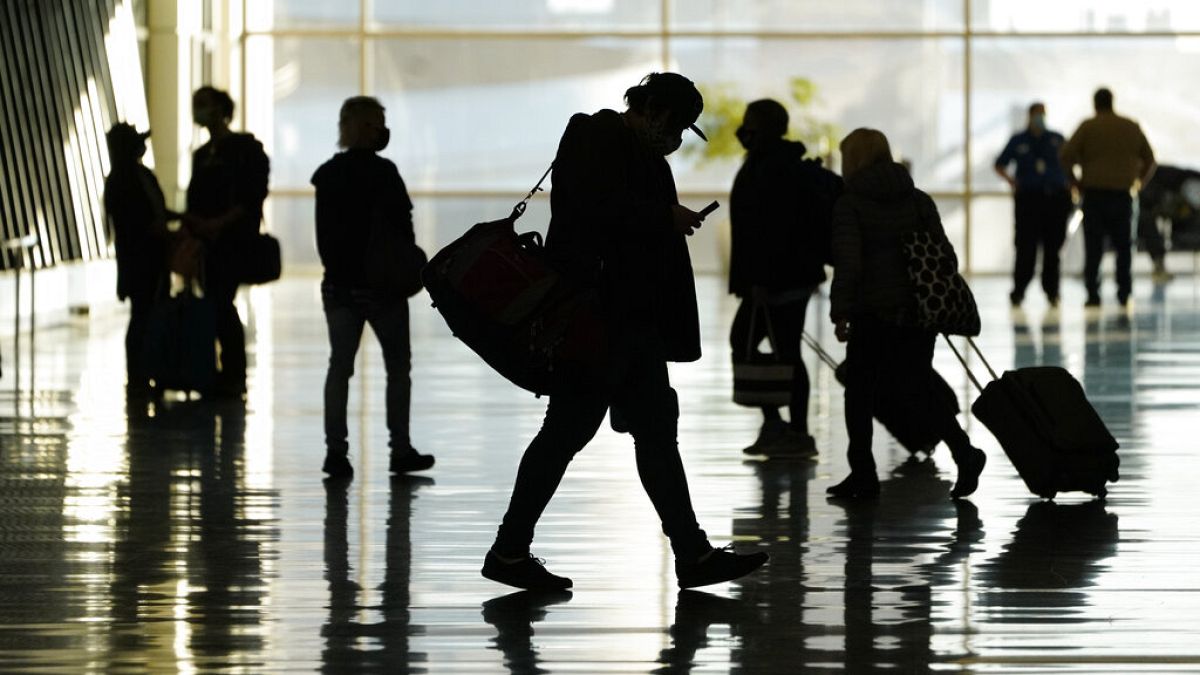The increase was driven largely by non-EU nationals coming to study in the country.
Net immigration to the UK has hit the highest rate ever recorded, according to statistics published on Thursday.
The UK Office of National Statistics found that 504,000 more people arrived in the country than left it.
This increase in the year to June 2022 was driven largely by the arrival of non-EU nationals, specifically students (39% of the total).
The biggest proportion of those leaving the UK were EU nationals.
Visa schemes for Ukrainians fleeing the war, Afghan nationals and a route for Hong Kong British overseas nationals led to around 186,000 arrivals, the ONS said.
Estimates covered the initial period when COVID restrictions were lifted, as well as the introduction of a new immigration system following the transition from the EU.
"A series of world events have impacted international migration patterns in the 12 months to June 2022," said Jay Lindop, Director of the Centre for International Migration, Office for National Statistics.
"Taken together these were unprecedented."
EU immigration stable
While EU nationals made up the biggest proportion of those leaving the UK -- at 275,000 compared to 195,000 non-EU nationals -- the ONS noted that emigration from the UK had been steady.
It also found that the immigration of EU citizens to the country remained broadly stable, though noted it was too early to say if this would continue.
EU nationals accounted for 21% of total immigration to the UK in the year ending June 2022 at 224,000.
The record-breaking figures -- representing the highest net migration since the end of the Second World War -- were driven primarily by people coming from elsewhere around the world.
Non-EU nationals accounted for 66% of the total long-term immigration at 704,000, an increase of 379,000 compared with the previous period.
British nationals made up the remaining 13% of immigration to the UK, including some British National Overseas holders from Hong Kong.
The reasons why EU and UK nationals immigrated to the country are varied. 37% came to the UK to "work", 15% to study and 45% said they came for "other" reasons.
'Unprecedented'
An estimated 1.1 million people arrived in the country overall, an increase of 435,000 from the previous year.
According to the ONS, the bulk of the increase was driven by students arriving to study. A total of 487,000 student visas were issued in the year to June 2022, an increase of 71%.
Students are a highly fluid population and the ONS said many were likely to leave after their studies finished.
The UK government has repeatedly vowed to slash immigration to the country, so far with little success.
Ex-Prime Minister David Cameron pledged to bring numbers down to the tens of thousands, while the later UK leader Boris Johnson dismissed this target saying immigration for vital for jobs and growth.
"These many factors independent of each other contributing to migration at this time mean it is too early to say whether this picture will be sustained," said Lindop, pointing at how the figures were influenced by the lifting of Covid travel restrictions and the reception of Afghan and Ukrainian refugees.
The report estimated that around 35,000 people arrived in the UK after crossing the English Channel in small boats.
The number of people granted asylum in the UK was 24% lower than in 2019, despite applications increasing by 77%.
Those arriving to the UK on student visas accounted for the largest proportion of non-EU nationals immigrating to the UK at 277,000.
The ONS said that this was possibly down to the lifting of Covid restrictions in 2021, which saw more students coming to study, adding it is "too early to say" if this trend would continue.
It also highlighted the potential influence of the new Graduate Visa route, enabling students to work in the UK for three years after completing their studies.
